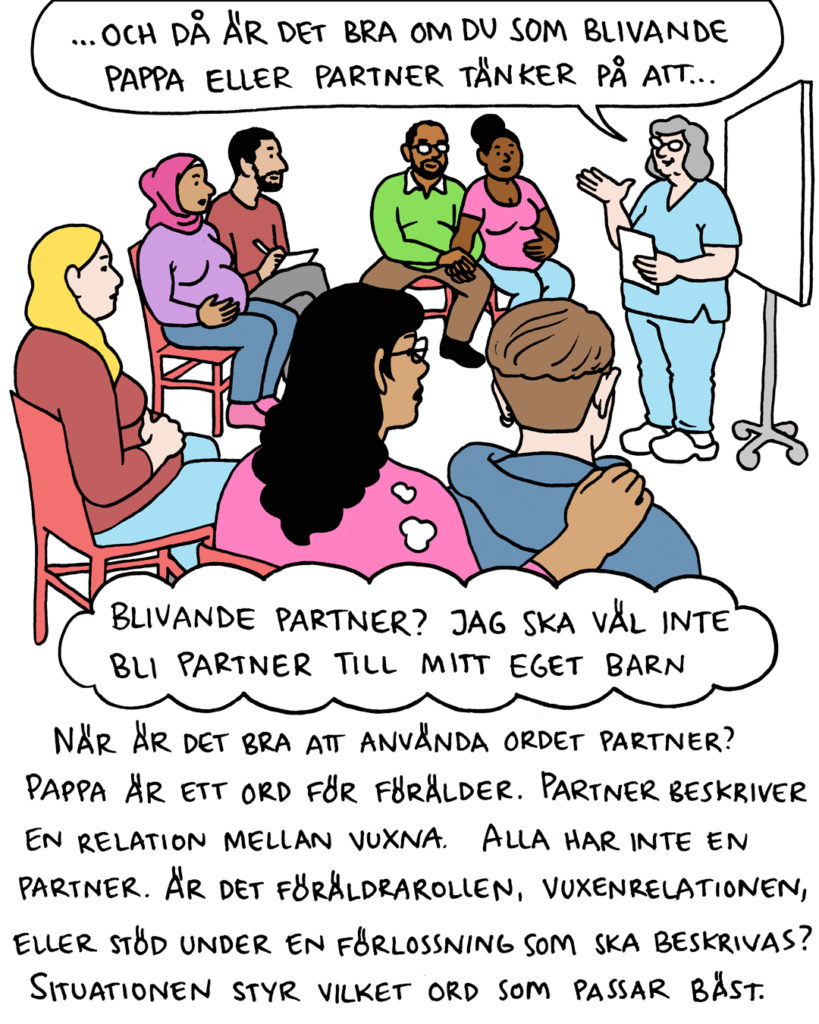Tips for an inclusive language
The word partner can be used to create a more inclusive and less heteronormative language. Since the term is gender-neutral, you include all partners, regardless of gender, which is positive. The use of gender-neutral terms also shows that you don’t make heteronormative presumptions about what a family should look like.
Sometimes, however, the word partner is used to describe the parenting role of those who are not fathers, i.e. women and non-binary people. Since partner is a term normally used to indicate a relationship between adults, the acknowledgement of the partner’s parental role is then lost.

How can we use language to acknowledge a parent-to-be?
More often than in heteronormative families, parents of rainbow families have planned for a child they are not genetically related to. These parents may share an experience of not being seen as the child’s “true” parent and run the risk of being made invisible or feeling excluded in maternal health contexts. Therefore, it’s important to show that you recognise these parents as the child’s true parents; that you support them as parents-to-be and make their new identity as parents visible, which will help reduce the stress they may experience. A simple way of acknowledging parenthood is by using words that describe the role of a parent rather than the role of a partner.
What words are best to use when discussing parenthood with parents-to-be?
When talking to a specific family, the easiest way is to ask what word for parent they themselves intend to use. Also, include questions about gender identity and the relationship between the family members to be able to give information based on each individual family’s needs. When you meet a family, you use the words they themselves use. If the family consents, it’s a good idea to put the information in the medical records so that they don’t have to explain themselves every time they meet a different professional.
When you speak more generally about families, words like pregnant, carrier, birth giver, parent, partner/s and support person during delivery may be used to include as many family constellations as possible.
Issues to reflect upon
Use these questions as a starting point for discussion at your workplace or in workgroups:
What words do you use when you talk to your clients about starting a family? How do you think your choice of words affects them?
